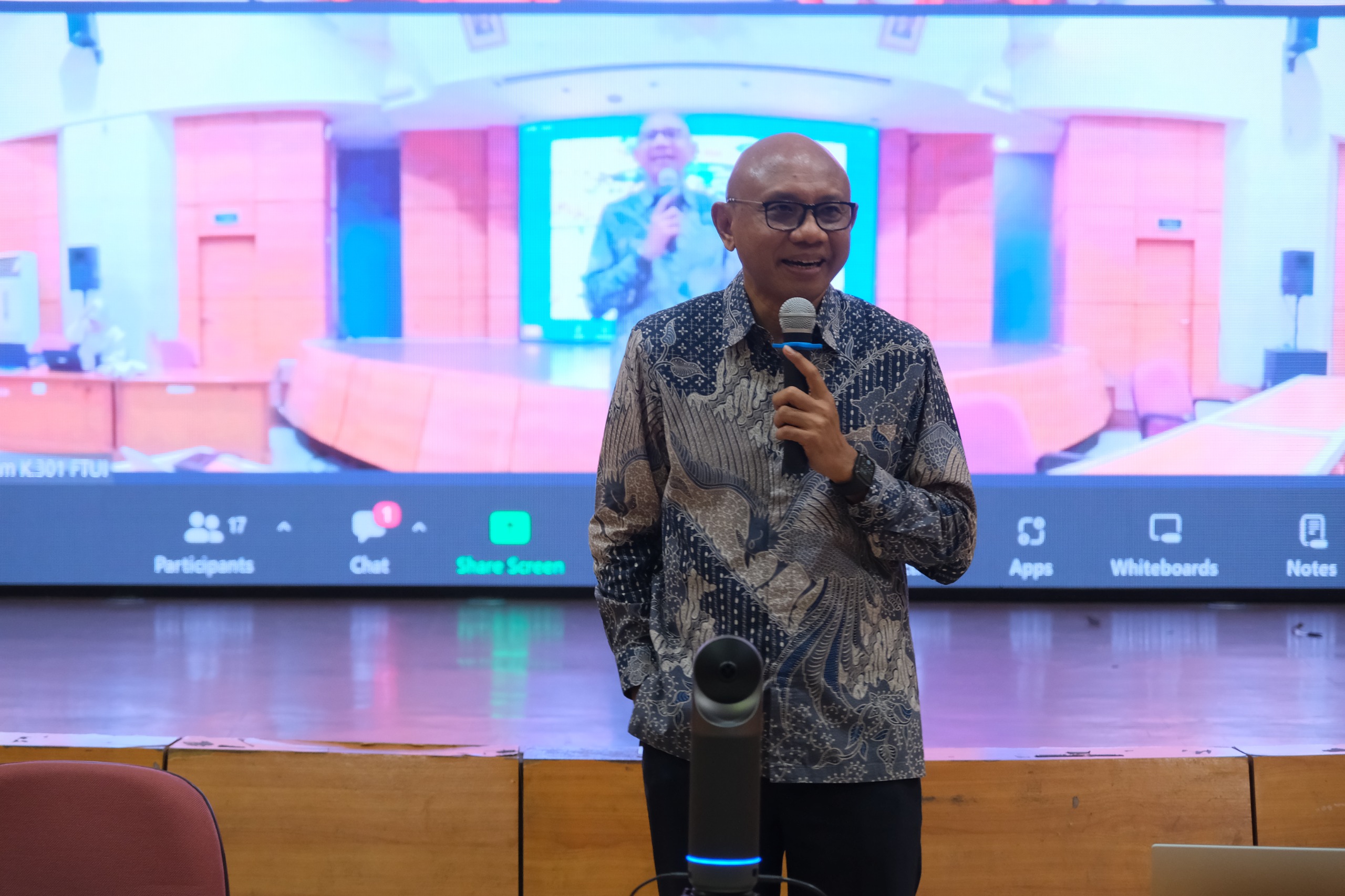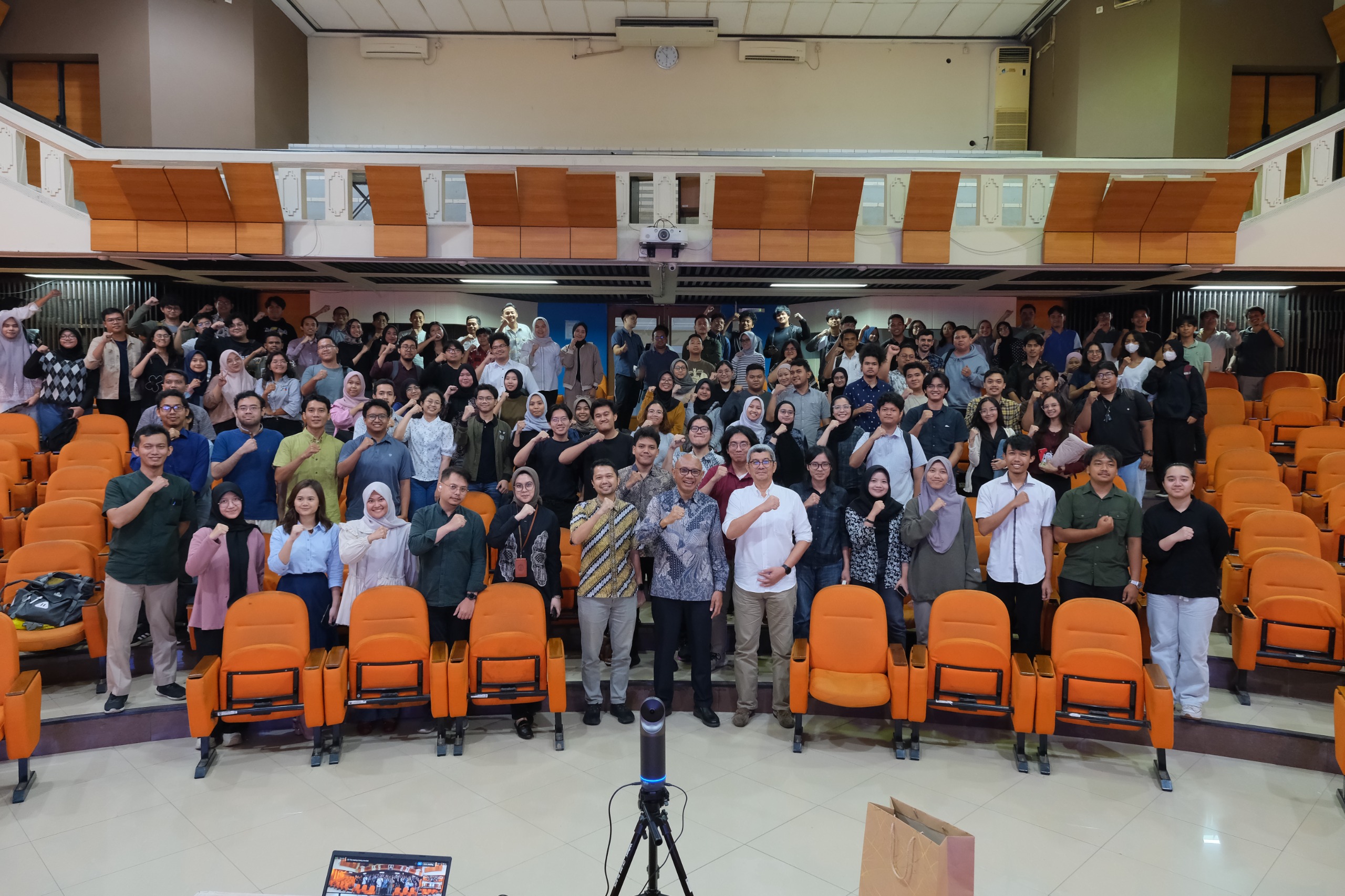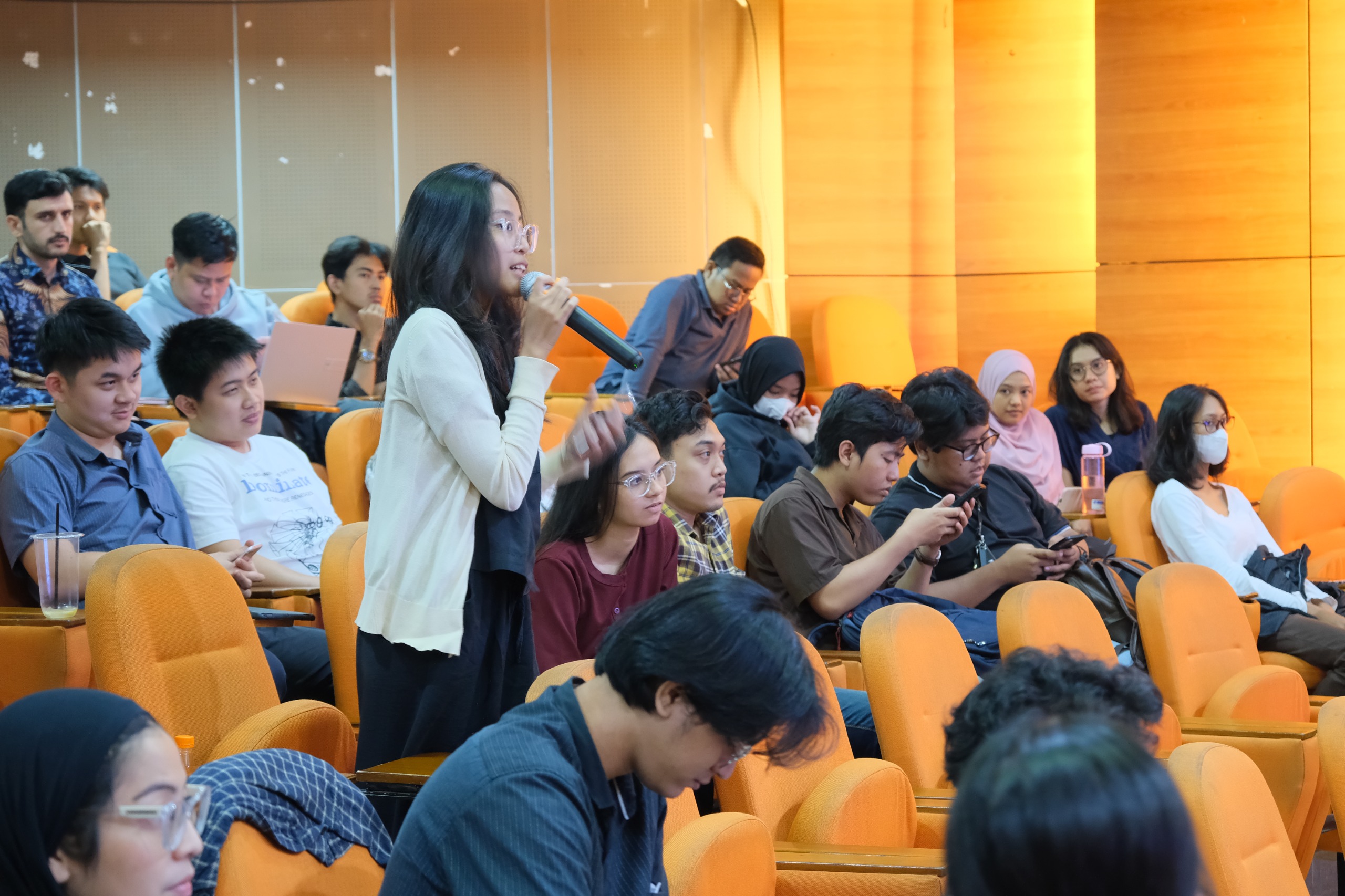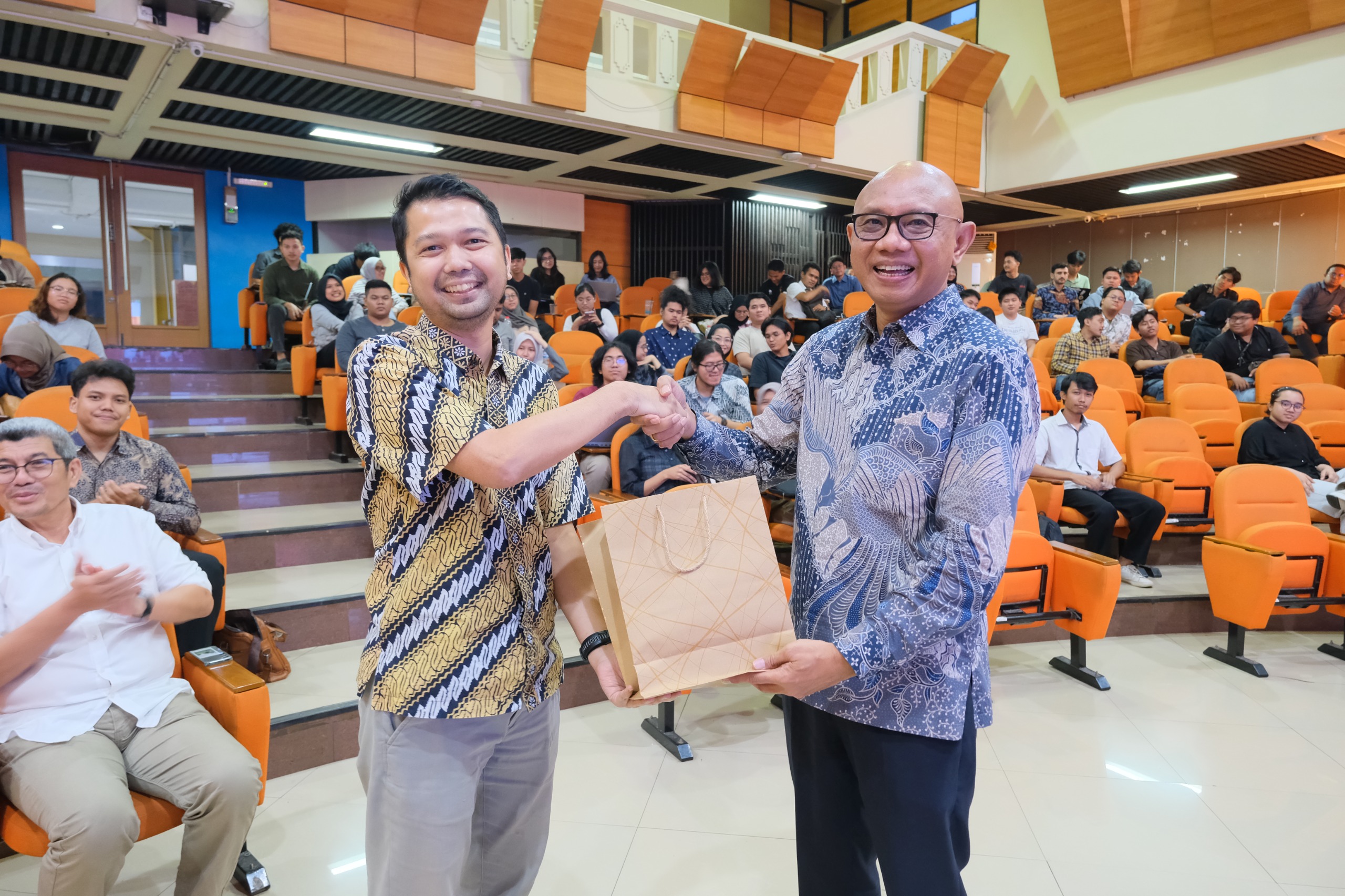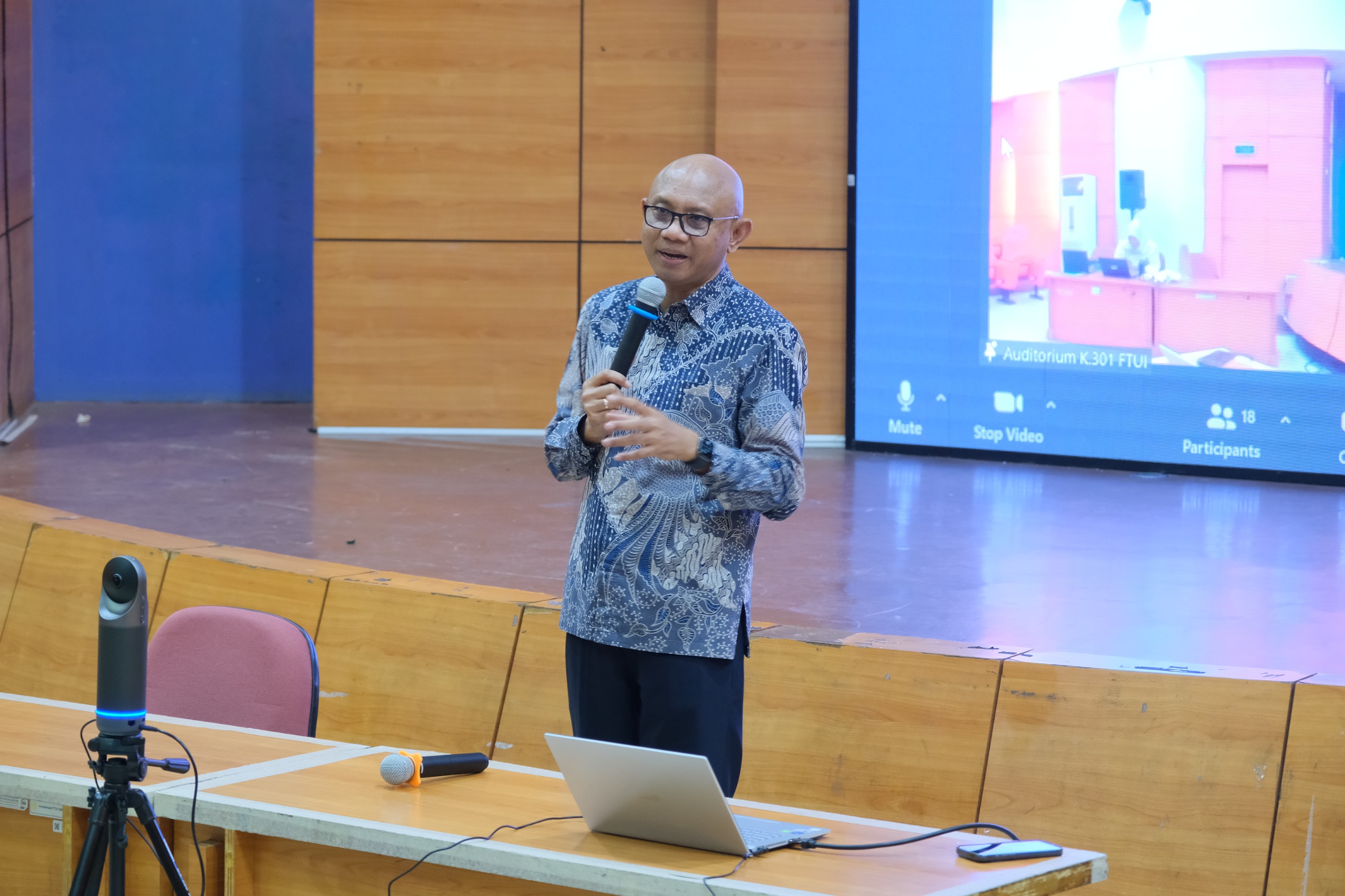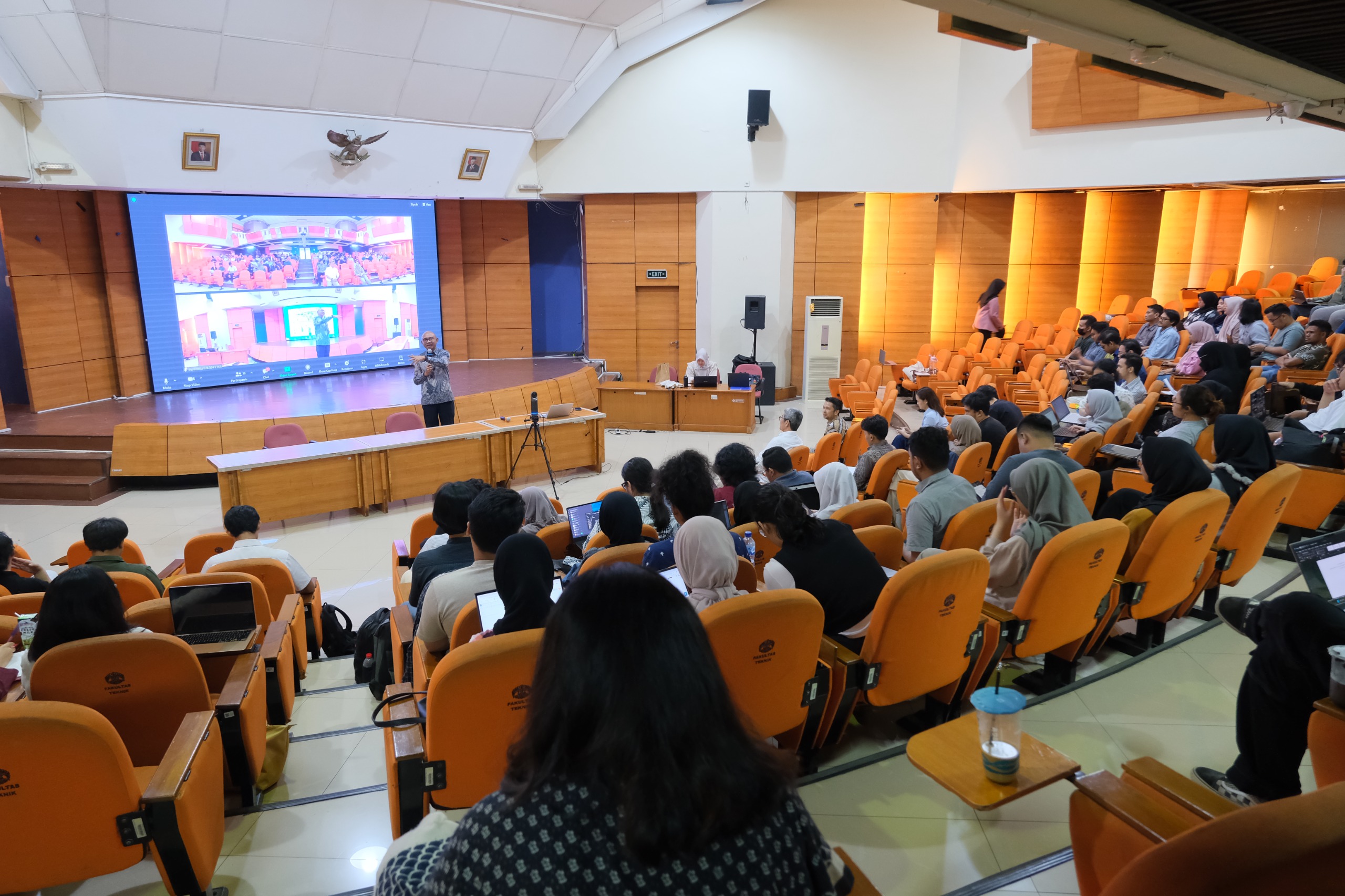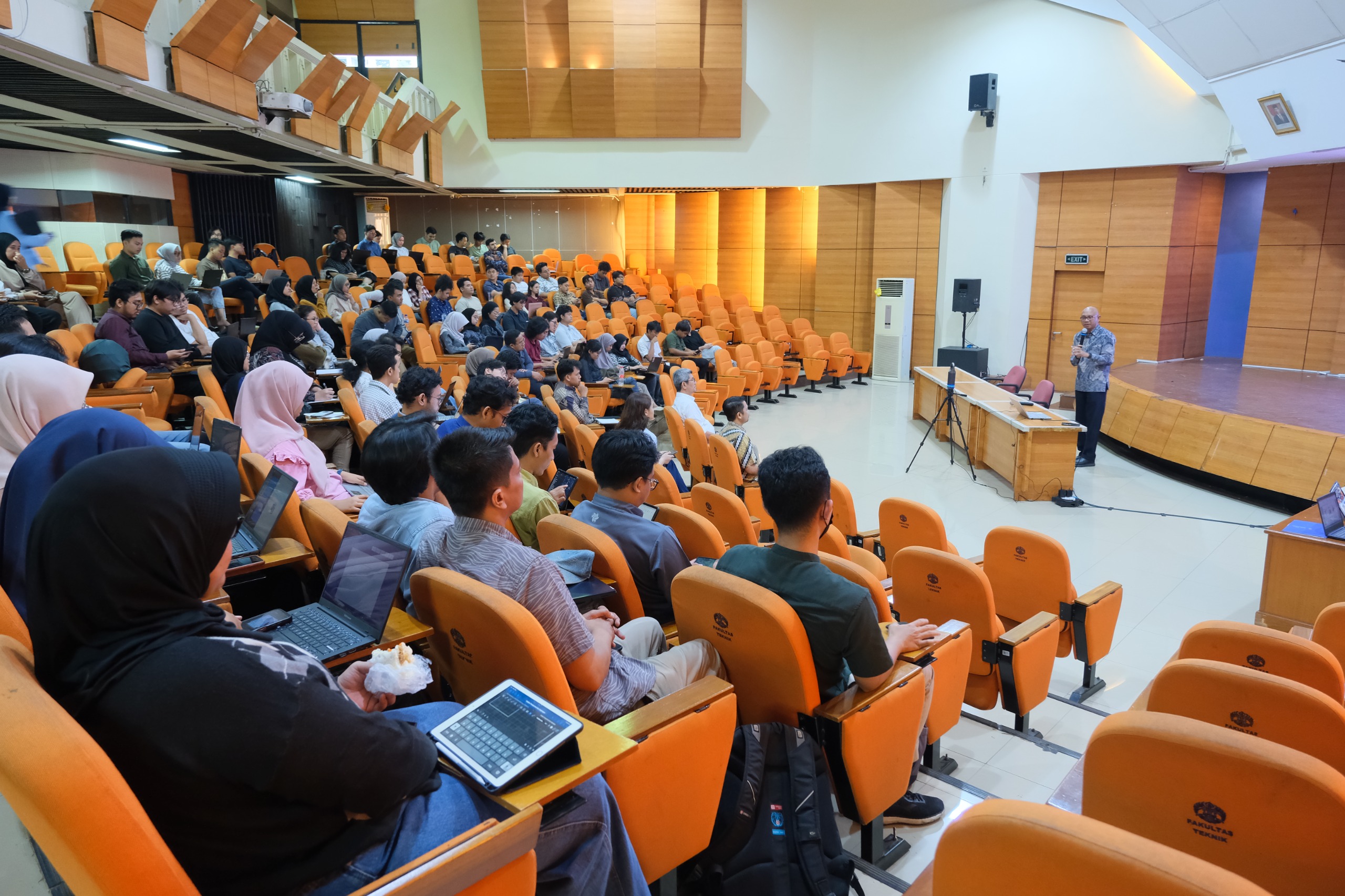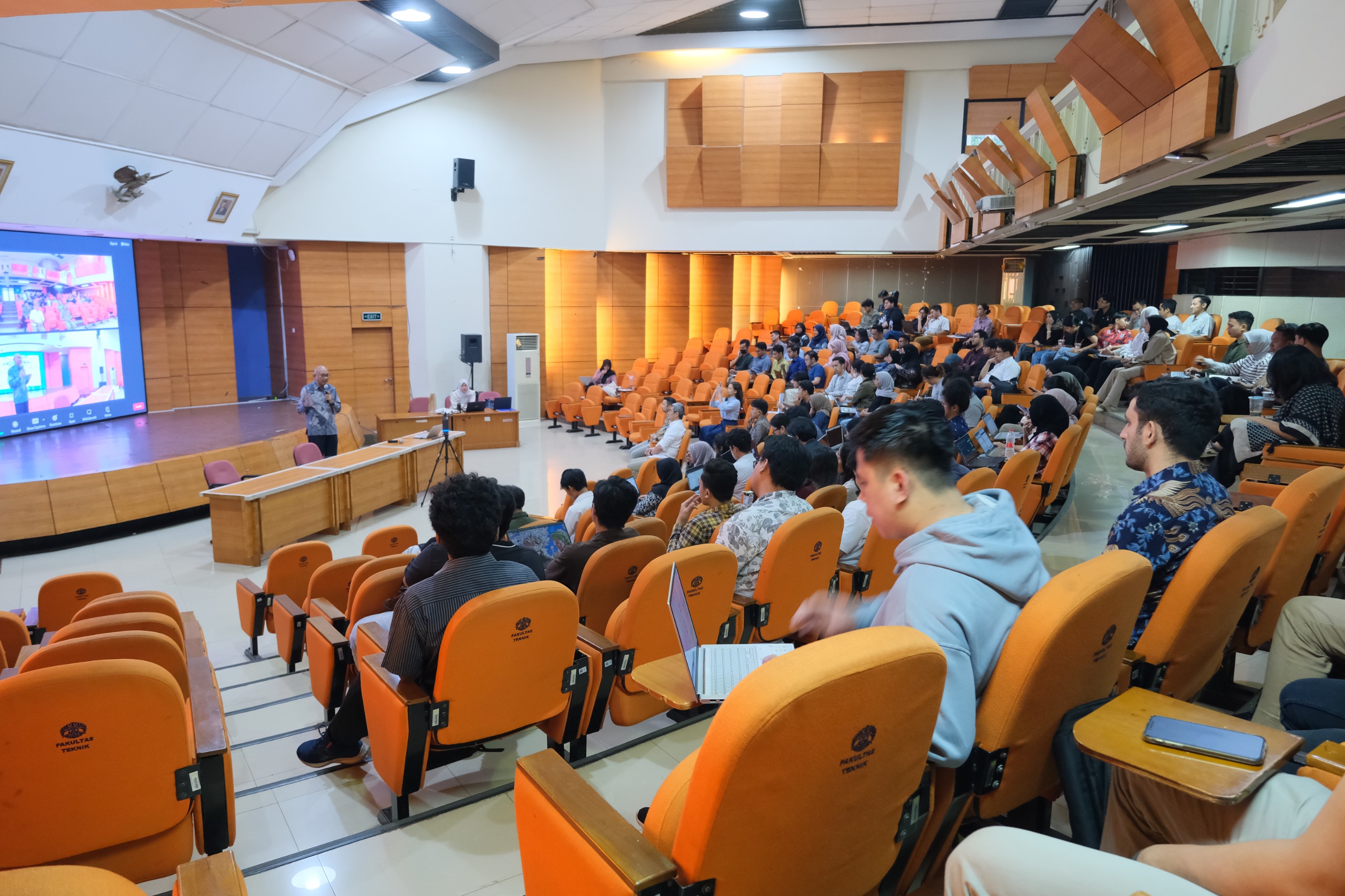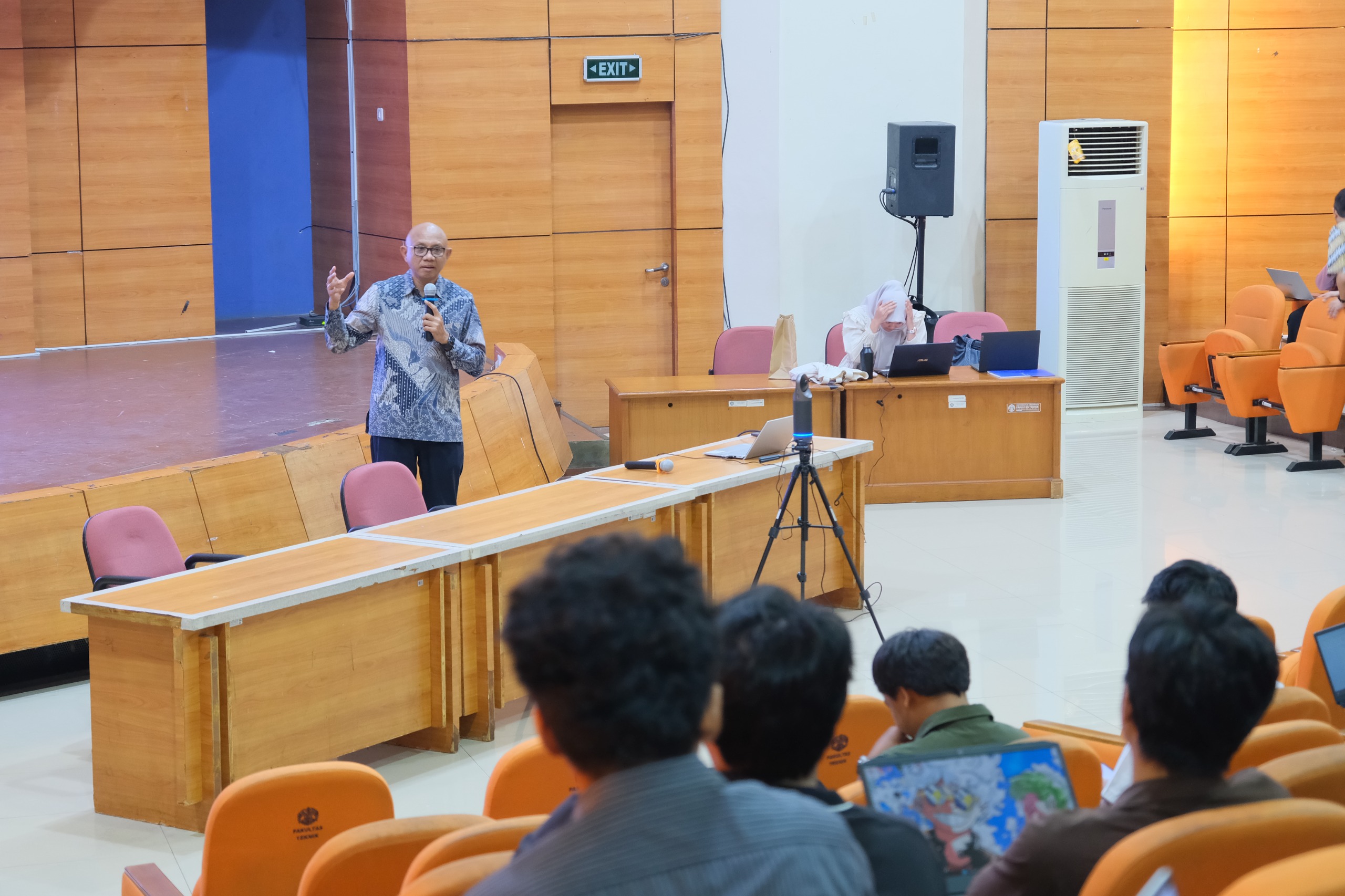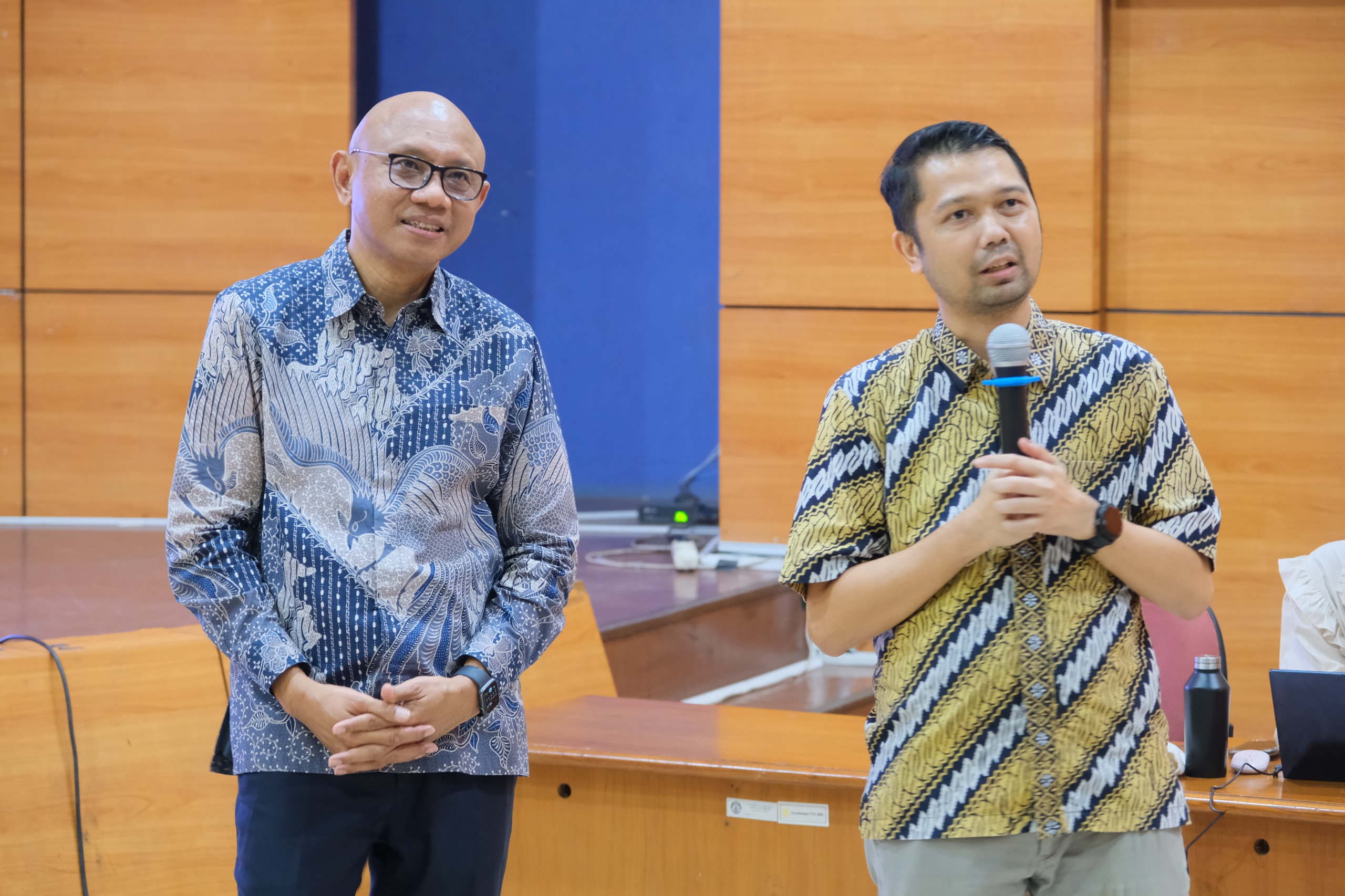On Friday (3/5), the Civil Engineering Study Program of the Civil Engineering Department at the Faculty of Engineering, University of Indonesia (FTUI) held a lecture featuring the President of Intelligent Transport System (ITS) Indonesia, William Sabandar. He delivered a lecture titled “Intelligent Transport System Application for Future Transport in Indonesia.” The lecture was conducted online via Zoom and in-person in room K301 of the K Building, FTUI, with attendees including undergraduate students in Civil Engineering and Environmental Engineering, and master’s students specializing in transportation.
Before the lecture began, Andyka Kusuma, S.T., M.Sc., Ph.D., Secretary of the Civil Engineering Department at FTUI, gave his remarks, “We express our gratitude to Mr. William for his willingness to share his knowledge with us. I hope the attending students pay close attention and actively participate in this lecture. He is an expert in the field of transportation and also served as the CEO of MRT (Mass Rapid Transit) from 2016 to 2022.”
Currently, William serves as the President of ITS Indonesia. ITS stands for Intelligent Transport System, or in Indonesian, Sistem Manajemen Transportasi Cerdas. He explained that ITS originates from the idea of applying advanced technology to improve the efficiency, safety, and sustainability of transportation systems, encompassing a range of tools and solutions across various transportation modes, including roadways, railways, air, and sea.
“ITS Indonesia has the vision of ‘Intelligent Transportation for a Golden Indonesia’. ITS Indonesia acts as a platform for the development of intelligent transportation and the digital transportation ecosystem, supporting economic growth and recovery, mobility equality, and environmental sustainability,” William explained.
He also elaborated on the various contributions of ITS to Indonesia. These include the Big Data Traffic Platform: Decision Support System, Intelligent Traffic Control System (ITCS), Digitization of Public Transport Payments, Park and Ride, and the Development of Electric Vehicles (EVs). In the future, ITS will develop new initiatives such as Electronic Traffic Law Enforcement, Electronic Road Pricing, Adaptive Traffic Control Systems, IoT Bus Systems, and Multi-Lane Free Flow.
ITS will also be implemented as one of the 8 principles in the Nusantara Capital City, namely Connected, Active, and Easily Accessible. It includes 3 Key Performance Indicators: 80% of trips with public transport or active mobility, 10 minutes to essential facilities and public transport hubs, and <50 minutes of express transit connection from KIPP to strategic airports by 2030.
“We want our lives to be easy. Therefore, we must adopt technology and innovation. ITS makes our lives easier with the convenience of transportation,” William concluded.
The Dean of FTUI, Prof. Dr. Ir. Heri Hermansyah, S.T., M.Eng., IPU, commented, “In the world of transportation, safety, sustainability, and efficiency are key aspects to consider. ITS is a technology capable of ensuring these three elements. Additionally, ITS aligns with the principles of the Nusantara Capital City. Hopefully, this can inspire students in developing future transportation technologies.”
William Sabandar now serves as President of ITS Indonesia. Previously, he served as President Director of PT MRT Jakarta from 2016 to 2022, where he led the construction and operation of Indonesia’s first metro system. He was also appointed as the Head of the Expert Transportation Assistance Team for the Nusantara Capital City. William leads a team of eight transportation experts from various backgrounds, embodying stakeholder participation in the planning and development process in the Nusantara Capital City.
***
Public Communication Office
Faculty of Engineering, University of Indonesia

